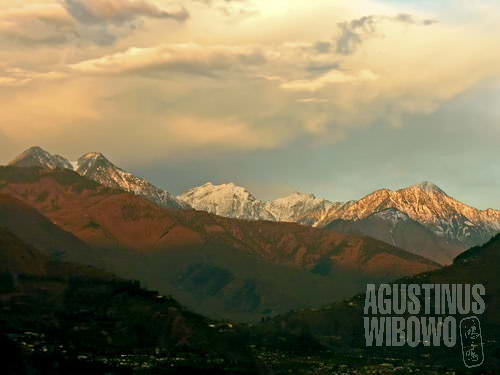Six Months in Pakistan – A Conclusion

How I missed Pakistan badly
Six months in Pakistan? Six months might be a long period, but might also be an incredibly short of time to enjoy a country named Pakistan. My six months in Pakistan made me learn many things, but also made me feeling I knew almost nothing about Pakistan. It’s a country of love and hospitality, but it’s also country of grieve and anger. Trying to conclude about my six month of experience in Pakistan in this one posting, is indeed a difficult task.
OK, rather than thinking about where to start, let’s start from the hospitality. Everybody, I am sure, who comes for the first time in Pakistan, would be overwhelmed by the hospitality of the people. The concept of ‘mehman’ or ‘guest’ in Pakistan is a very big deal. Pakistanis feel honoured to serve guests, to protect them, and to give them anything they need. Sometimes the mihmannavazi or hospitality reach to some extends that is difficult to believe. A Kashmir earthquake victim may sacrifice all of the chickens he has to provide the best biriyani for the dinner of the guest, despite of his own difficulty of daily food. Invitations for tea and dinner never ends in chilling land without sunshine, Chapurson, in the middle of cold winter. Even the people enjoying dinner on food street in busy cities like Lahore might turn to be your best friends.
Northern Areas of Pakistan, might be imagined by ‘far away land’ by most Pakistanis. It’s mystical, the Hunza valley, which is wellknown to most Pakistanis, is a valley surrounded by magestic snow-capped peaks. Hunza has now been made ‘closer to our world’ since the innauguration of the Karakoram Highway which connected Islamabad to Kashgar in China. The people of Hunza up north to China are from Ismaili sect, distinctive from majority Pakistanis who are Sunnis or Shias. Ismaili’s leadership system which put Aga Khan as the spiritual leader, is seen by other Muslims as blasphemy of the religion. In fact, from some talks with people in Punjab, they regard Ismailis, along with Ahmadis, are non-Muslims. Ismaili is quite a moderate type of Islam, and many of its teachings are quite similar to the concept of Islam most people in Indonesia believe. The orthodox concept of purdah, which is common in many other parts of Pakistan, is nowhere to be found in Hunza. In fact, Hunza girls dont hesitate to greet male foreigners.
Up north from Hunza, we will arrive in Upper Hunza or Gojal valley. Gojal is also blessed by majestic peaks and attract many travellers, trekkers, mountain climbers, etc. People in Gojal speak different language. Their Wakhi language is closer to Farsi and intelligible in their counterparts in Afghan side of Wakhan land, but completely incomprehensible for people in Hunza who speak Burushashki and Shina. Northern Areas, with its culturan diversity, offer an area with wide range of linguistic richness. Sust, the main town of Upper Hunza, now is flourished by foreign money, after the border dry port is opened and eased the trading with the neighbouring giant China. Winter in Upper Hunza is cold, and the business also had to calm down, as the border had to be shut due to the snow. Life in Sust in deep winter returned to be a calm village life again.
Not far from Sust, the Chapursan valley, experience the same coldness in winter. This valley was a sensitive border area due to its proximity to Afghanistan, but now slowly but sure, tourists are coming. Chapursan in winter is not friendly, the sun doesnt want to appear for about two and half months, allowing the people of the valley to live in darkness with stark wind. Electricity is always a problem, and people live in their traditional homes with firewood burning. But, despite the coldness, bitterness, unfriendliness of the environment, the people never lose even single bit of their hospitality.
Kashmir was devastated by the stark earthquake. The official number of casualties was an astonishing number of 179,000 people, but the exact number would never known. Villages were swallowed by mountains, and thousands of people were buried or killed by their own shelter. Relatives were separated each other, babies were killed, sisters were not even to be seen anymore. Everybody lost at least one of family members. But life has to go on. The tears have to be wiped, and the future have to be started again. The reconstruction works has started, education for children being the essential project again, simple quake proof shelter homes are there to shelter new hopes.


Leave a comment